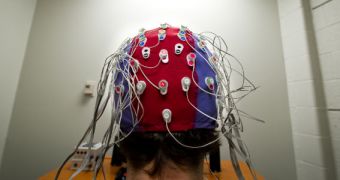Scientists at the Michigan State University (MSU) have determined in a new study that the human brain has a tough time learning a new task after the rules have changed. The process is prone to error, and it takes a longer time for people to master these skills than it would if they learned something altogether new.
The example the research team gives is that of a person traveling to the United Kingdom, and suddenly having to drive on the left side of the road. Even though they know all the rules and regulations, adapting to performing all required actions in the mirror is unbelievably difficult.
In such cases, the tendency of the brain is to suppress the old rules and focus on the new ones at the same time. This action takes a lot of effort and resources to complete, which opens the way for many errors. In some cases, the consequences of such error are more significant than in others.
“There’s so much conflict in your brain, that when you make a mistake like forgetting to turn on your blinker you don’t even realize it and make the same mistake again. What you learned initially is hard to overcome when rules change,” the MSU team writes.

 14 DAY TRIAL //
14 DAY TRIAL //